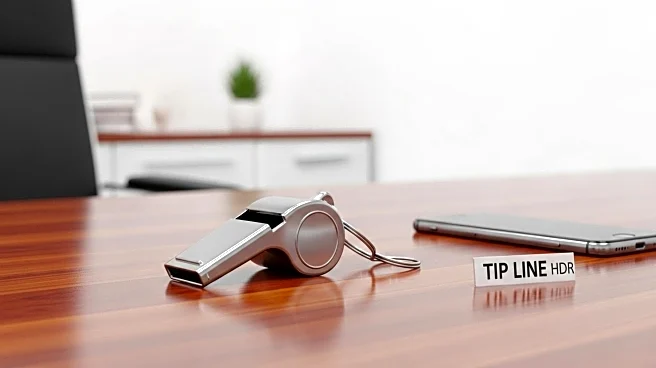What's Happening?
The College Sports Commission (CSC) has introduced a new tip line to facilitate anonymous reporting of potential violations related to the Name, Image, and Likeness (NIL) rules in college sports. This initiative is part of the CSC's efforts to oversee compliance with the $2.8 billion House settlement that allows college athletes to earn money from their NIL. Bryan Seeley, CEO of the CSC, emphasized the importance of having reliable reporting methods, which include anonymous submissions, to ensure compliance and accountability. The CSC has partnered with RealResponse, a technology company, to provide various reporting channels such as text, WhatsApp, and web forms, ensuring the anonymity of whistleblowers. The CSC is responsible for analyzing third-party NIL deals valued at $600 or more, with nearly 6,100 deals worth approximately $35.4 million approved so far. However, there have been complaints about delays in the approval process, which the CSC attributes to the need for thorough reviews of certain deals.
Why It's Important?
The introduction of the tip line is a significant step in maintaining the integrity of college sports as it adapts to the new NIL landscape. By providing a mechanism for anonymous reporting, the CSC aims to deter potential violations and ensure fair play. This development is crucial for colleges, athletes, and stakeholders who are navigating the complexities of NIL agreements. The ability to report anonymously is particularly important in the competitive environment of college sports, where fear of retaliation has historically discouraged whistleblowing. The CSC's efforts to streamline the reporting and approval process are vital for maintaining trust and transparency in the system, which ultimately benefits student-athletes by ensuring they receive fair compensation without compromising the integrity of college sports.
What's Next?
The CSC will continue to refine its compliance program, using the tip line to gather information on potential violations and improve the efficiency of the NIL deal approval process. As the system evolves, the CSC may face pressure to address concerns about delays and improve the functionality of the NIL Go platform, which is used for deal submissions. Stakeholders, including college administrators and athletes, will likely monitor the effectiveness of the tip line and the CSC's overall compliance efforts. The success of this initiative could influence future regulatory approaches to NIL agreements and shape the broader landscape of college athletics.









